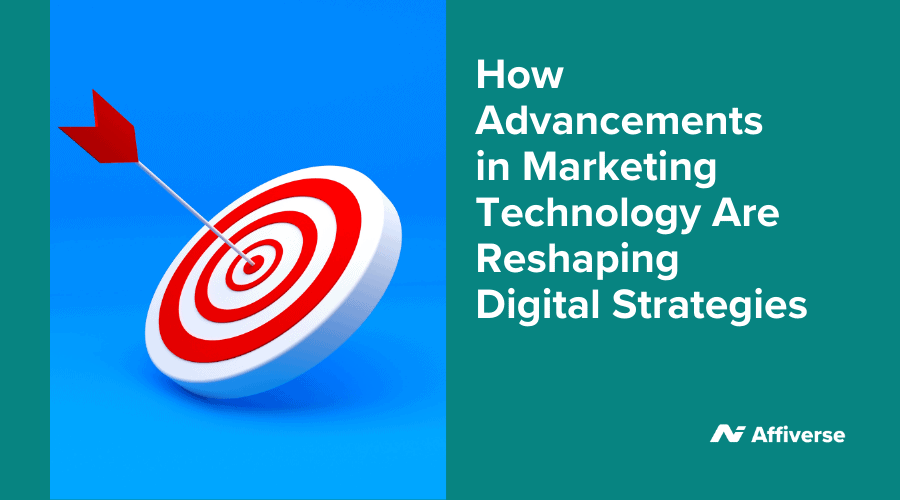How Advancements in Marketing Technology Are Reshaping Digital Strategies

The world of digital marketing is evolving faster than ever, and at the heart of this transformation is technology.
Recent advancements in marketing technology (MarTech) are fundamentally changing how brands engage with audiences, optimise campaigns, and measure success. From artificial intelligence (AI) to data analytics, these tools are streamlining operations and unlocking new opportunities for growth.
For businesses aiming to stay competitive in today’s crowded digital landscape, understanding and adopting the latest MarTech trends is no longer optional—it’s essential.
The Rise of AI in Marketing
AI has moved beyond being a buzzword to become a core part of marketing strategies. Brands are now using AI-driven tools to automate tasks, personalise content, and predict consumer behaviour with remarkable accuracy.
- Content Generation and Optimisation: AI-powered platforms can now generate written content, design visuals, and even create videos. This allows brands to scale content production without compromising quality. Tools like ChatGPT and image generators streamline the creative process, freeing up time for strategy and innovation.
- Personalised Customer Experiences: AI analyses user data to deliver highly personalised marketing messages. Whether through tailored email campaigns or personalised website experiences, brands can engage customers with relevant content that drives conversions.
- Predictive Analytics: AI enables marketers to anticipate customer needs and behaviours, helping brands stay ahead of trends and tailor their strategies accordingly. This predictive capability improves decision-making and reduces wasted ad spend.
Data Analytics Driving Smarter Marketing Decisions
Data has always been a valuable resource, but the way brands collect, analyse, and use data is becoming more sophisticated. Modern analytics tools are offering deeper insights into customer journeys, enabling marketers to make smarter, data-driven decisions.
- Customer Journey Mapping: Advanced analytics platforms track user interactions across multiple channels, helping brands understand how customers move from awareness to purchase. This allows marketers to optimise touchpoints and remove friction in the buying process.
- Real-Time Analytics: With access to real-time data, brands can monitor campaign performance instantly and adjust strategies on the fly. This agility ensures marketing budgets are spent wisely, maximising return on investment.
- Attribution Models: Improved data tracking tools are giving marketers a clearer picture of what drives conversions. Whether it’s social media, search, or affiliate marketing, accurate attribution models help allocate resources effectively.
?️ Listen in to this podcast episode where Emma Tett, VP of Agency Innovation at impact.com and co-founder of Affluent discusses smart data strategies and how affiliate managers can win back their Sunday nights!
Automation Streamlining Marketing Operations
Marketing automation has become an essential tool for brands aiming to work more efficiently and deliver consistent customer experiences. Automation platforms handle repetitive tasks, freeing up teams to focus on strategy and creativity.
- Email Marketing Automation: Automated email workflows nurture leads and engage customers without manual intervention. Brands can trigger personalised emails based on user behaviour, boosting engagement and sales.
- Social Media Scheduling and Management: Tools like Later and Hootsuite automate social media posting, ensuring brands maintain a consistent presence across multiple platforms. AI also helps determine the best times to post for maximum engagement.
- Programmatic Advertising: Automated ad buying uses AI to purchase digital ad space in real-time. This approach ensures that ads reach the right audience at the right moment, improving targeting and reducing costs.
Customer Relationship Management (CRM) Evolution
CRM systems are becoming smarter and more integrated with marketing tools. Modern CRMs don’t just store customer data—they actively help brands build stronger relationships through targeted marketing efforts.
- AI-Powered CRMs: Platforms like Salesforce and HubSpot now use AI to suggest actions, predict customer behaviour, and personalise communication. This proactive approach improves customer engagement and retention.
- Omnichannel Integration: CRMs are now more connected than ever, linking email, social media, chatbots, and more. This unified view ensures that brands deliver a seamless experience, regardless of how customers choose to engage.
Voice Search and Conversational Marketing
As smart speakers and voice assistants become more common, voice search is changing how consumers find information and interact with brands. This shift requires marketers to rethink how they approach SEO and content creation.
- Voice-Optimised Content: Marketers are adapting their content to be more conversational, focusing on long-tail keywords and natural language to align with how people speak.
- Chatbots and Virtual Assistants: AI-powered chatbots are handling customer service queries, offering product recommendations, and even completing transactions. This instant support improves user experience and increases conversions.
The Future of MarTech: What’s Next?
The MarTech landscape shows no signs of slowing down. Emerging technologies like augmented reality (AR), virtual reality (VR), and blockchain are set to further disrupt marketing strategies.
- Augmented Reality (AR): Brands are using AR to create interactive shopping experiences, allowing customers to “try on” products virtually before purchasing.
- Blockchain for Transparency: Blockchain technology could revolutionise digital advertising by providing greater transparency in ad spend and combating fraud in affiliate marketing.
- 5G and Faster Connectivity: The rollout of 5G technology will enhance mobile experiences, enabling richer content delivery and more immersive brand interactions.
Adapting to the New Marketing Landscape
For brands, keeping up with these advancements is critical. Adopting new marketing technologies allows companies to stay relevant, improve efficiency, and connect with consumers on a deeper level. However, success requires more than just investing in the latest tools—it demands a thoughtful strategy that balances technology with creativity.
Brands that embrace these technologies and use them to enhance customer experiences will stand out in a crowded marketplace. Those who fail to adapt risk falling behind.
Marketing technology is no longer just about keeping up with trends—it’s about staying ahead of them. By leveraging AI, data analytics, automation, and other cutting-edge tools, brands can unlock new opportunities and drive long-term success in the digital age.






